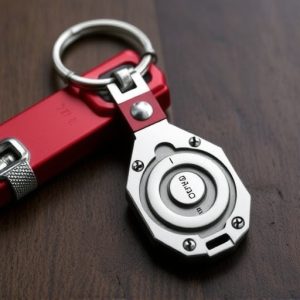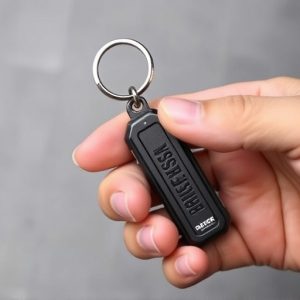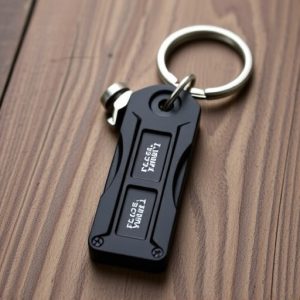Compact Keychain Self Defense: Navigating Legal Requirements for Safety
The legal status of compact keychain self-defense tools varies globally based on design, functionali…….
The legal status of compact keychain self-defense tools varies globally based on design, functionality, and potential harm/protection factors. Users must research local laws to ensure compliance. Balancing size and efficacy is key, as these tools can offer significant protection despite their small form factor. Safety features, knowledge of local ordinances, and reputable brands are essential for legal and secure use in self-defense situations.
In today’s world, personal safety is paramount. Compact keychain self-defense tools offer a discreet yet powerful option for individuals seeking protection on-the-go. However, navigating legal requirements for these devices can be complex. This article guides you through the intricacies of understanding and adhering to legal frameworks governing self-defense devices, focusing on compact keychain tools. We explore their effectiveness, safety considerations, and best practices to ensure both peace of mind and legality.
- Understanding Legal Frameworks for Self-Defense Devices
- Keychain Self-Defense Tools: Size vs. Effectiveness
- Ensuring Safety and Legality: Best Practices for Keychain Defense Devices
Understanding Legal Frameworks for Self-Defense Devices
In many jurisdictions, the legal status of self-defense devices, especially compact keychain tools designed for personal safety, is a nuanced topic. It’s essential to understand that regulations vary widely from one country to another and even within different states or provinces. What might be considered a legitimate self-defense tool in one place could be subject to strict controls or outright prohibition elsewhere. These legal frameworks often differentiate between devices based on their design, functionality, and potential for harm versus protection.
When evaluating the legality of compact keychain self-defense tools, authorities consider factors like the type of mechanism (e.g., sharp blades, impact-based), the level of force it can exert, and whether its primary purpose is for protection or aggression. As a result, it’s crucial for individuals considering carrying such devices to research their local laws thoroughly. This ensures compliance with regulations while also promoting responsible use in situations requiring self-defense.
Keychain Self-Defense Tools: Size vs. Effectiveness
When considering compact keychain self-defense tools, it’s essential to balance size and effectiveness. These tiny devices are designed to fit comfortably on a key ring, making them easily portable. However, their diminutive nature can raise concerns about their ability to deter or even inflict significant harm in an emergency.
The effectiveness of a compact keychain self-defense tool often lies not just in its physical attributes but also in the design and quality of its components. Look for tools that incorporate sharp, durable edges or powerful spring-loaded mechanisms, which can provide the necessary force in a pinch. Despite their small size, well-designed keychain self-defense tools can serve as credible deterrents when used appropriately, ensuring both portability and peace of mind.
Ensuring Safety and Legality: Best Practices for Keychain Defense Devices
Ensuring Safety and Legality: Best Practices for Keychain Defense Devices
When considering compact keychain self-defense tools, it’s crucial to balance effectiveness with legal compliance. These small yet powerful devices can offer added security in various situations, but their use is subject to regional laws and regulations. Users should familiarize themselves with local ordinances regarding self-defense instruments, especially when carrying them publicly. Some areas have restrictions on the type and size of defense tools allowed, while others may require permits or registration for certain items.
To stay safe and legal, it’s recommended to opt for keychain self-defense tools that are designed with safety in mind, featuring mechanisms that minimize injury risk. Additionally, keeping updated on local laws and being discreet about carrying such devices can help avoid unnecessary attention and potential legal issues. Always choose reputable brands that provide clear information about their products’ legality and safety features.
When considering the legal implications of compact keychain self-defense tools, understanding your region’s specific regulations is paramount. By adhering to best practices and staying informed about self-defense device laws, you can ensure both personal safety and compliance. Remember, a small tool can make a significant difference, but it must be used responsibly and within the confines of the law.


